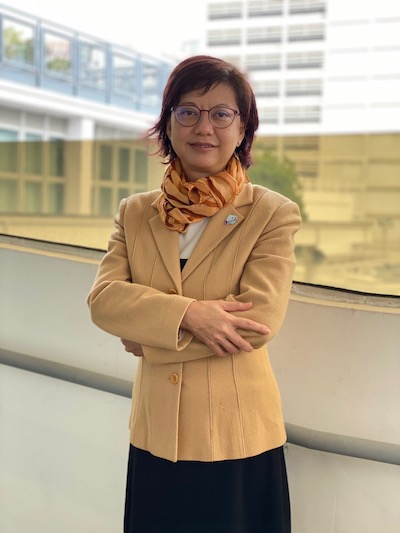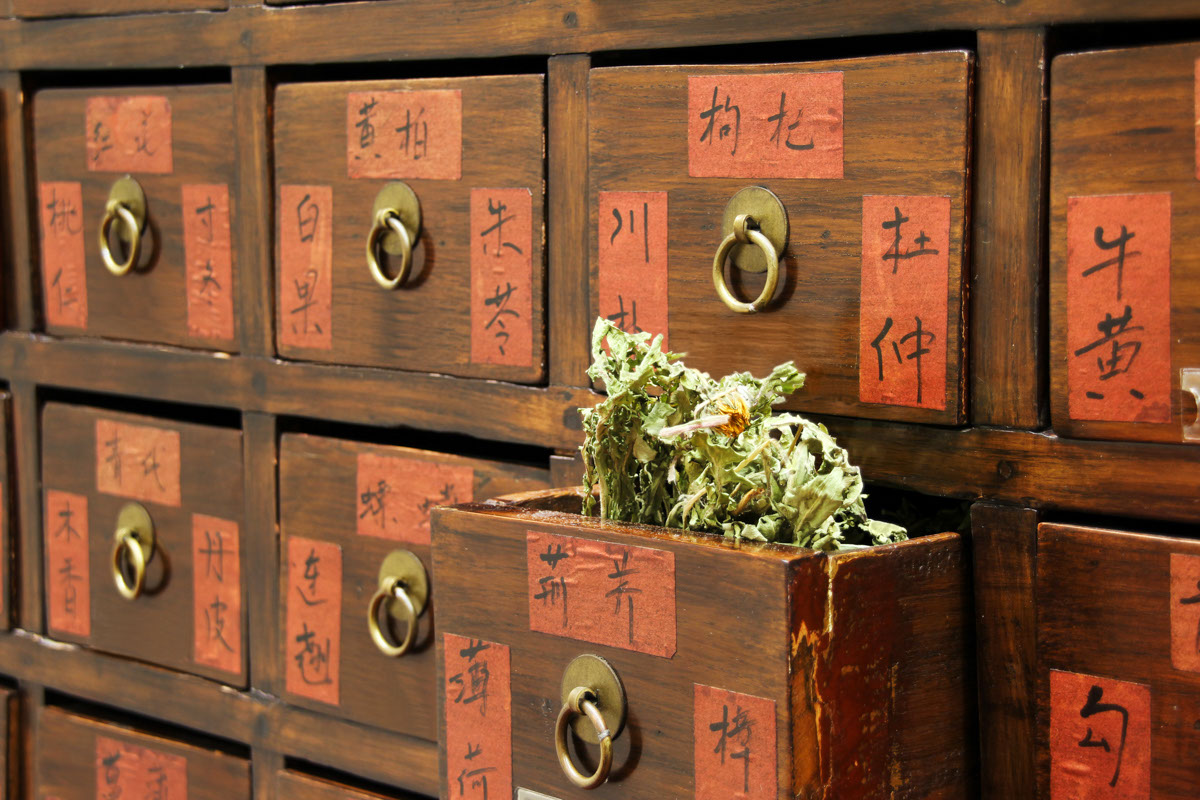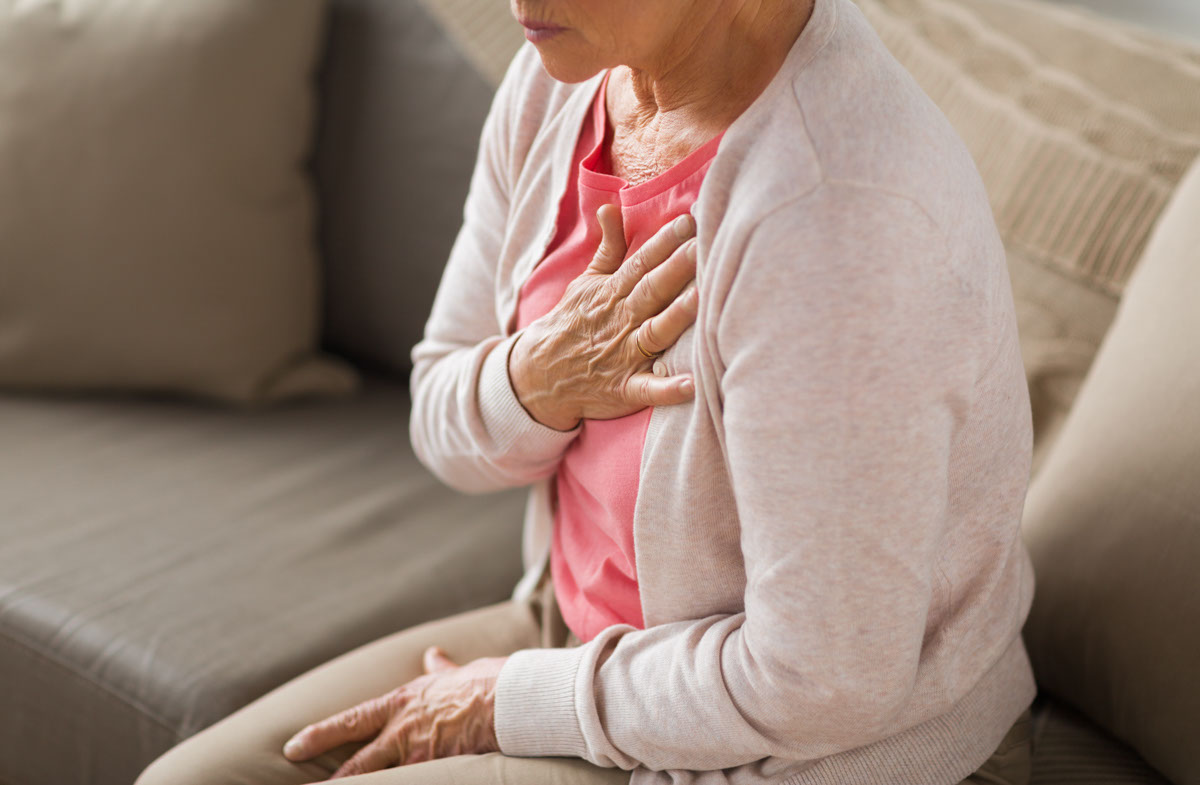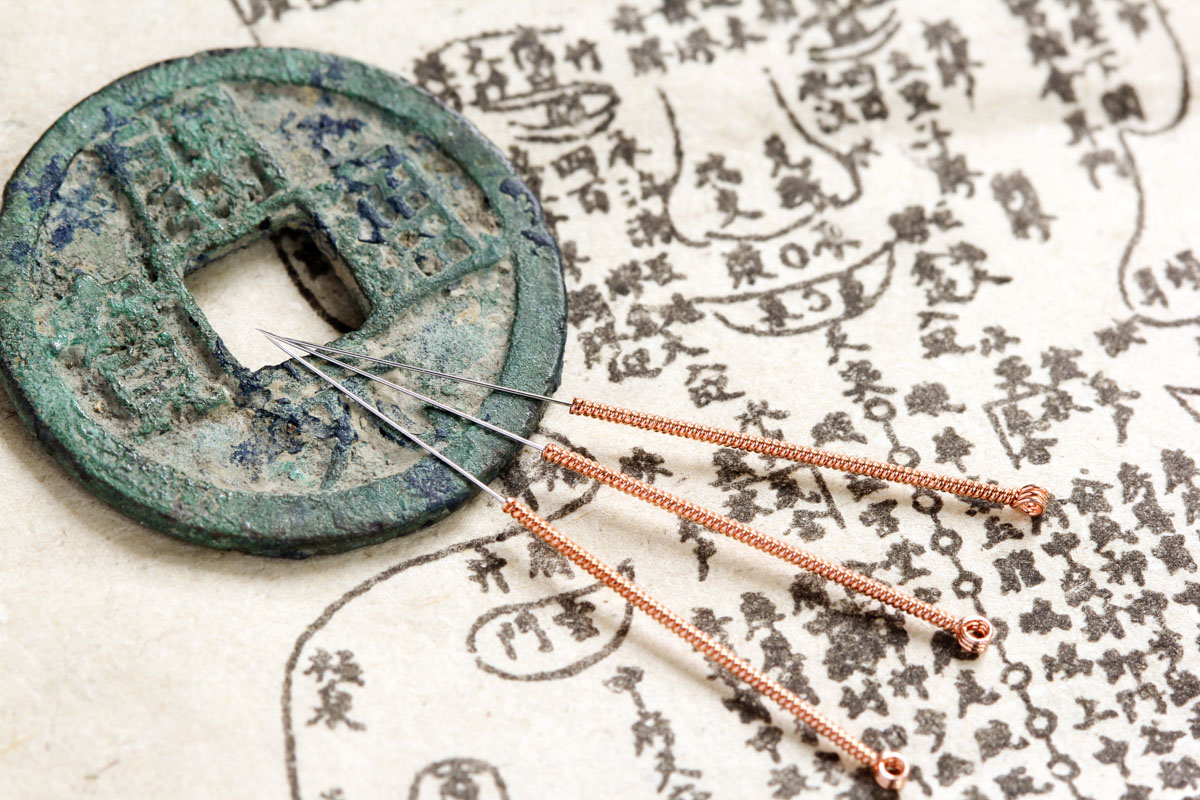Treatment on Chinese Medicine and Integrated Chinese and Western Medicine Provided by the Hong Kong Hospital Authority
Ms. Rowena Wong
Chief of Chinese Medicine Department
Hospital Authority
Interview: Ms. Wong Wing Chen Janet
Information Compilation : Ms. Rita Liaw, Ms. Julie Mu, Ms. Bernadette Cook


Introduction:
The Hospital Authority (HA) has established Chinese Medicine Teaching and Research Centers in all 18 districts of Hong Kong since 2003, promoting Chinese medicine services based on "teaching" and "research". The Chinese Medicine Teaching and Research Centers are operated by the HA, non-governmental organizations, and local universities in a tripartite partnership model, with non-governmental organizations responsible for the daily operation of the clinics, providing Chinese medicine services to the public. In this interview, Ms. Rowena Wong gives us a detailed introduction to Chinese medicine and integrated Chinese and Western medicine services provided by the HA.
Part One - Outpatient Services Provided by the Hospital Authority - "Chinese Medicine Clinics cum Training and Research Centres" (Chinese Medicine Clinics)
Part Two - Inpatient Services - Integrated Chinese and Western Medicine Program
Part Three - Words for Caregivers
Part One - Outpatient Services Provided by the Hospital Authority - "Chinese Medicine Clinics cum Training and Research Centres" (Chinese Medicine Clinics)
Wong: Ms. Wong, I'm very grateful for your time today to discuss Chinese medicine and integrated Chinese and Western medicine services provided by the Hospital Authority.
Wong: You're welcome.
Wong: Perhaps we can explore two areas: first, outpatient services; and second, inpatient services.
Operating Model
Wong: Let's start with outpatient services.
Wong: Sure.
The government has established "Chinese Medicine Clinics cum Training and Research Centres" (hereinafter referred to as "Chinese Medicine Clinic") in every administrative district in Hong Kong through the Hospital Authority. These clinics provide government-subsidized outpatient services based on "teaching" and "research". They are located in Hong Kong, Kowloon, and the New Territories. Some of the Chinese medicine clinics are located in hospitals under the Hospital Authority, and some are located elsewhere. These Chinese medicine clinics are operated in a tripartite partnership model by the Hospital Authority, non-governmental organizations, and local universities that offer undergraduate degree programs in Chinese medicine.
The government provides funding to the Chinese medicine clinics through the Hospital Authority. In terms of aligning with the government's policy on the development of Chinese medicine, it is directly managed by the Chinese Medicine Department under the Hospital Authority.
The daily operation of the traditional Chinese medicine clinics is managed by non-governmental organizations with experience in community service. Currently, we are working with ten organizations, including Tung Wah Group of Hospitals, Yan Chai Hospital, Pok Oi Hospital, etc.
Three universities that provide professional training in traditional Chinese medicine are also actively participating, providing professional manpower and scientific research support. The distribution among them is quite even - the University of Hong Kong, the Chinese University of Hong Kong, and the Hong Kong Baptist University are currently each assisting six traditional Chinese medicine clinics respectively.
Scope of Service
The scope of service includes:
- Government-subsidized services; and
- Non-government subsidized services.
In terms of subsidized Chinese medicine services - since March 2020, through these Chinese medicine clinics, we provide about 600,000 government-subsidized outpatient quotas each year (about half of the total number of consultations for the whole year), covering treatment-related Chinese medicine internal medicine outpatient services (including no more than five doses of Chinese medicine), acupuncture, and bone injury acupressure services. The government-subsidized outpatient service charges 120 dollars per service, applicable to eligible Hong Kong residents. Comprehensive Social Security Assistance beneficiaries and Old Age Living Allowance beneficiaries aged 75 or above can be exempted from charges.
In terms of non-government subsidized (i.e., self-paid) Chinese medicine services - the range of services provided by Chinese medicine clinics is very wide, including non-therapeutic services, such as preventive treatment, weight control, moxibustion, specialist consultation, etc. The charges are determined by the management committee of each Chinese medicine clinic, providing citizens with more service choices.
Clinic Locations
Wong: How can the public find information about these Chinese medicine clinics?
Wong: For details, please visit our "HACMK" website: https://cmk.ha.org.hk/
About Oncology Services
Wong: Do any Chinese medicine clinics provide oncology services?
Wong: Some Chinese medicine clinics provide oncology services, including those in the Central and Western District, Tuen Mun District, and Kwai Tsing District, etc. Cancer patients can choose suitable Chinese medicine services according to their needs and circumstances.

Part Two - Inpatient Services - Integrated Chinese and Western Medicine Program
Wong: After talking about outpatient services, let's talk about inpatient services.
Most Hong Kong citizens would think that patients hospitalized in hospitals under the Hospital Authority only receive Western medical treatment, but I understand that in recent years, elements of Chinese medicine have also been introduced in "inpatient" services. Could you please tell us about this.
Wong: The Hospital Authority received government support in 2014 and began to implement the "Chinese-Western Medicine Collaboration Program" in designated hospitals. This is to provide better care for patients, gain experience in the development of Chinese medicine inpatient services, and promote the development of Chinese medicine further training.
The "Program" is currently implemented in seven hospitals across Hong Kong, including Tung Wah Hospital, Tuen Mun Hospital, Pamela Youde Nethersole Eastern Hospital, Prince of Wales Hospital, Shatin Hospital, Kwong Wah Hospital, and Princess Margaret Hospital.
The program covers four disease categories, one of which is cancer palliative care services, and the rest are stroke, lower back pain, and shoulder and neck pain treatment.

Cancer palliative care
Wong: We are of course most interested in cancer palliative services, how is the situation?
Wong: The Chinese-Western medicine collaborative service for cancer palliative care is currently being piloted at Tuen Mun Hospital and Princess Margaret Hospital. The Yan Oi Tong - Chinese University of Hong Kong Chinese Medicine Clinics cum Training and Research Centres (Tuen Mun District) and Yan Chai Hospital - Hong Kong Baptist University Chinese Medicine Clinics cum Training and Research Centres (Kwai Tsing District) respectively provide Chinese-Western medicine collaborative treatment for inpatient cancer patients in these two hospitals.
The program mainly targets symptoms such as insomnia, loss of appetite, constipation, pain, fatigue, asthma, and lymphedema that appear in cancer patients. We try to use Chinese medicine treatment to alleviate or solve these symptoms.
Inpatients with the above symptoms, after being evaluated by the attending physician and excluding unstable clinical conditions, can add Chinese medicine and acupuncture treatment while receiving regular Western medicine treatment during hospitalization.
Patients' participation in the program's services is voluntary and requires additional payment for the Chinese medicine services. Since March 2020, the government has increased resources to reduce the charges for Chinese-Western medicine collaborative inpatient services. The additional fees that patients need to pay have been reduced from $200 per day to $120.
Wong: So in these two hospitals, we will see medical staff taking Chinese medicine to the patients?
Wong: Yes. In specific wards, the Chinese medicine clinic will deliver the patient's Chinese medicine to the ward according to the diagnosis and prescription of the Chinese medicine doctor. Medical staff will distribute Chinese medicine to patients on time.
Wong: Inpatient services have always been dominated by Western medicine treatment. Are Hospital Authority colleagues acceptive to this?
Wong: Before launching this project, we had detailed discussions and training with colleagues from the participating hospitals, understanding what kind of medicine is prescribed by traditional Chinese medicine; how to monitor the patient's reaction after taking Chinese medicine, and how to respond if there are any problems.
If a patient has an adverse reaction after taking certain Chinese medicines, we will immediately stop and thoroughly investigate the problem. Because for us, ensuring patient’s safety is the most important principle.
After launching the service, the feedback we received was very positive, especially in pain management, there is already a lot of data proving that acupuncture can alleviate patients’ condition.
Wong: This service can be said to be pioneering in Hong Kong, because our impression of traditional Chinese medicine treatment has always been provided at the outpatient level. At the same time, in the process of providing this service, more data can be collected for scientific research purpose, and a valuable platform can be provided for the integration of Chinese and Western medicine.
Wong: Yes.
In terms of policy, in addition to emphasizing the provision of appropriate services to the public, we also attach great importance to and encourage scientific research, hoping to promote traditional Chinese medicine from the perspective of "evidence-based medicine". Traditional Chinese medicine is based on experience, but if it can be further strengthened from the direction of evidence-based research, I believe it can further enhance the use of traditional Chinese medicine to help the public.
An example is that the Kwai Tsing District Chinese Medicine Clinic conducted clinical research from 2018 to 2020 to understand the effectiveness of traditional Chinese medicine acupuncture treatment in alleviating the side effects of chemotherapy in colorectal cancer patients. The results showed that electroacupuncture treatment to relieve acute peripheral neuropathy caused by chemotherapy is not only effective, but also safe.
The Hospital Authority will continuously review the plan to study the feasibility of expanding services, so that more patients in need can benefit.

Part Three - Words for Caregivers
Wong: This Guide is written for caregivers of cancer patients, do you have any advice for them?
Wong: We will continue to enhance our services, especially those with great demand, such as pain management issues, etc., to provide more appropriate services for cancer patients.
The Chinese medicines used in traditional Chinese medicine clinics are actually chemical components with biological activity. Therefore, one of the challenges of combining Chinese and Western medicine treatment is the possible interaction between the drugs.
If a patient with cancer feels unwell, caregivers should remind the patient not to eat wild herbs or just buy some proprietary Chinese medicine (pCM) on their own. They must seek treatment from a registered Chinese medicine practitioner. I also want to emphasize the importance of "symptom differentiation and appropriate treatment" (辨證論治), which is to let the Chinese medicine practitioner understand their conditions in detail, and then determine the treatment principles and specific treatment methods. Do not believe in so-called "folk remedies"(民間偏方).
When seeing a Chinese medicine practitioner, the patient should tell the practitioner that they are undergoing Western medical treatment, and on the other hand, they should also tell the main Western doctor that they are undergoing Chinese medical treatment, so that both can pay attention to changes in the body and follow up in time.
Wong: I'm very grateful for your acceptance of my interview, which has allowed us to learn so much.
Wong: You're welcome.
(December 2021)




